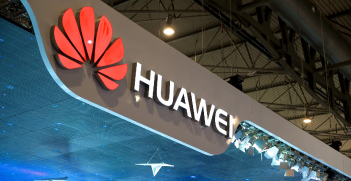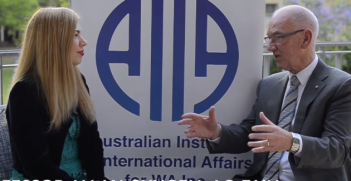Time for a New Beginning in International Affairs?

As children return to school and we settle into 2018, it is worth taking a moment to think about time and how it affects our strategic views.
Happy New Year!
Such goes the typical greeting for the first few weeks of the year. New years are supposed to be happy. Leaving behind the exhaustion and worries of times before, even hardnosed policy wonks can slip into expecting a new year to mean a new start.
If any period needs a sense of restart and refresh, 2018 is surely it. The trend lines from recent years are down with pessimism rising, at least for those of us outside the Chinese communist party’s inner circle. The US has become a ‘headless giant’, populism and anger seem to define global politics, and old institutions seem powerless to resist the change.
Of course, when we take a moment to think about it, nothing has really changed over the last month. The choice to end the calendar year on what we call 31 December and start it afresh on 1 January is completely artificial. Many cultures around the world do not see their year as beginning on this date. And, while there is a rough alignment to the seasons, this is indistinct (especially for those of us in the southern hemisphere).
Arbitrary as they may be, anniversaries, key dates, transitions and expectations all play a role in international politics. For a few hours in December 1914, World War I was famously interrupted for an impromptu Christmas truce. In modern conflicts such as Afghanistan and Syria, the arrival of Ramadan has enabled temporary ceasefire agreements.
Leaders and countries can also play up these moments, or find their actions governed by them. Newly-elected leaders are regarded as in a honeymoon during which they are able to push for change and secure foreign policy victories; while those at the end of their tenure are lame ducks with little power to act. The same is true for nation states. The United States and Australia used their bicentennials in the late 1980s as moments to celebrate their new optimism and rise. China promoted its hosting of the 2008 Olympics as its global ‘coming-out party’.
Expectations of time and its passage are also integral to many of our current assumptions about global politics. The heart of the debate about North Korea is whether the window of opportunity for a military strike on the hermit kingdom remains open or has forever closed. The debate about China has often been benchmarked to the—also largely arbitrary—question of when the Chinese economy will overtake America’s as the largest in the world.
Many believe there are long-standing cultural habits around the passage of time. The US is seen as easily distracted and impulsive, regardless of the caution it showed as a new nation gathering power in the lead-up to World War I or the patience it had to contain the Soviets over many decades during the Cold War.
The Chinese, by contrast, are often heralded as far-sighted and cautious. Yet this image is one that has also been carefully cultivated in the propaganda offices of Beijing and it is often at odds with the reality of policy in recent years. China has sacrificed most of the regional goodwill it had in 2008 by pushing too hard too soon on issues of boundary and fealty.
Still, beliefs about time can easily take on a life of their own. Many in Asia may prefer a US-led order, but if they see China’s rise to leadership as rapidly approaching, they will not try very hard to cling to the past. Likewise, for Beijing, if regional authority is almost upon China, the temptation will grow stronger and stronger to reach out for control and influence today, whatever the actual power balance on the ground.
So, as children return to school and we settle into 2018, thinking about time and how it affects our strategic views is a useful starting point. Are there actions Western states can take to mark a transition point or achieve a sense of renewal from the unhappy recent past? Is there a way to put a bookend to the ‘Brexit-Trump’ populist surge narrative, and argue a new shift has occurred? What visions and stories can we tell about the medium or even short term that counter widespread beliefs of long-term Western decline?
We’ll need to move quickly, time’s ticking by.
Dr Andrew Carr is a senior lecturer at the Strategic and Defence Studies Centre at the ANU. He is the editor of the Centre of Gravity policy paper series and his most recent book is ‘Winning the Peace: Australia’s campaign to change the Asia-Pacific’ (Melbourne University Press, 2015).
This article is published under a Creative Commons Licence and may be republished with attribution.





